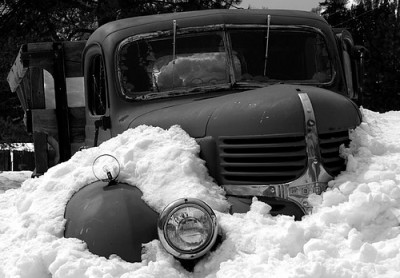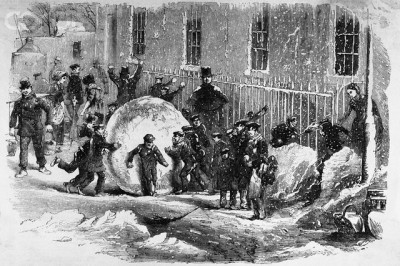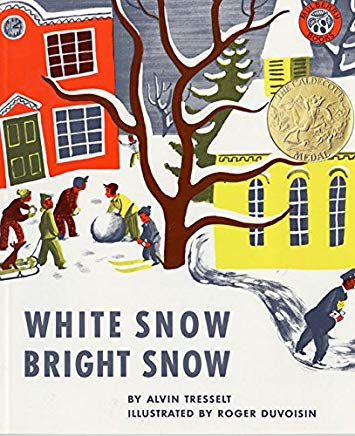The Blog
Blog Entry
Smooth and Deep

There is something both timely and stubbornly old-fashioned still echoing at the heart of White Snow, Bright Snow (created, after all, in 1947 by a couple of Jersey guys with lordly sounding names), and it’s not just the noise from the shovels. Hipper, sophisticated readers may tend to reflexively avert their eyes around children’s literature from this era, and no wonder. Plenty of us are still around who grew up amid the bleakness of Dick and Jane and Spot relentlessly chasing balls and reverting to types (though a case could be made that the current models are every bit as confining for all of their chipper enlightenment).
Certainly there is not a lot of character development here, or anywhere a village eccentric. There’s a postman, a farmer and a policeman, befitting any righteous post-war society, and a policeman’s wife with a dustpan, a high collar and an achy big toe. There’s a scenic red brick schoolhouse (the clock on the roof stuck significantly at 3) with children outside gazing expectantly into the fast closing evening, and there are rabbits digging burrows between the recently fallen leaves. Same place, different year. Generation after generation.
Yet then comes the snow, and it is never exactly the same as we remember it. What else in all of the natural world is so reliably unfamiliar after only nine months away? Here is a town – however formulaic – suddenly springing to attention: children laughing and catching snowflakes with their mouths and digging their sleds out of closets; the farmer clearing paths; the policeman staring down emergencies before they happen; the postman putting on his rubbers – if for no other reason than to prove an axiomatic point. Gosh, the mail comes late in these parts, but never mind. Conditions turn irresistible pretty shortly: automobiles “like big fat raisins buried in snowdrifts. Houses crowded together, their windows peeking out from under great white eyebrows.”
So a truce: Is there ever another time when the forces of nature and the bulwarks we have built to endure them appear at once so at odds but essential? And what primal human impulse is this – is it duty? Is it skepticism? Adventure? – that compels us to challenge ourselves against the elements before finally permitting the consolations of the hearth?


